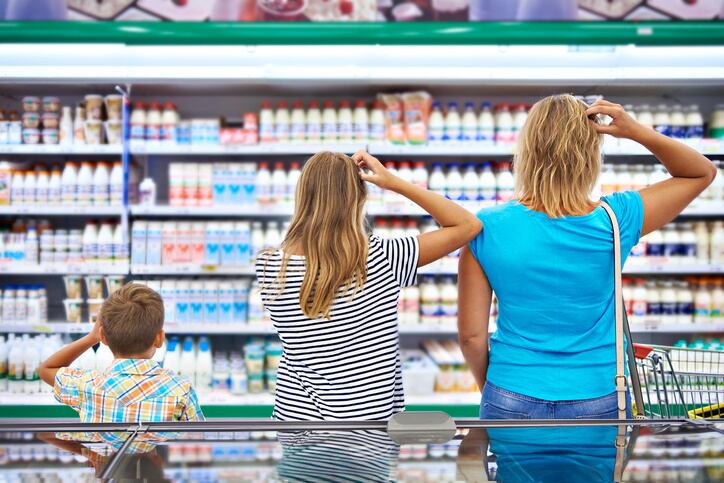The Irish ingredient supplier conducted a survey of more than 14,000 consumers across 18 countries to understand their expectations when it comes to sustainability in the food industry, describing the initiative as ‘one of the largest surveys of this type ever to be undertaken’.
Evolving definitions of sustainability: Nutrition and ‘clean’ eating
The research showed 49% of consumers are now considering sustainability when buying food and drink and linking the ideas of environmental and social sustainability to sustainable nutrition. Sustainability is also becoming associated with the concept of clean eating, Kerry Insight Director Soumya Nair told us.
“This research has unveiled some really surprising results that have positioned sustainability as a must-have rather than a differentiator among consumers.
“Consumers today are increasingly invested in what they purchase and consume, not just curious, but also purposeful in finding what ingredients were used in the food and beverage, its provenance, and its consumer-friendly, clean label position. Sustainability has started to take a more dominant role in this consumer evaluation and certainly is linked to their priority of health and nutrition and the focus on clean.”

Kerry’s analysis concluded typical associations with sustainability – such as packaging or environmental preservation - are now considered ‘standard’. In more ‘sustainably-mature’ markets like the UK, Benelux, and France, people view ‘sustainably sourced’ as something that ‘directly impacts them’, with food waste reduction, personal health and nutrition, and clean label claims such as ‘locally sourced,’ ‘no artificial ingredients’ and ‘organic’ all flagged as relevant.
“Consumers hold the industry at a higher standard today, expecting food and beverages to not only be tasty and safe, but also sustainable, healthy, and clean, not one or another. While claims that indicate clean to consumers vary across countries, organic, locally-sourced, no artificial ingredients, no additives, etcetera are catchall indicators that the food or beverage they consume is sustainable, healthy, and clean,” Nair elaborated.
Industry action to empower personal impact
Kerry found a clear majority of people – a massive 84% - believe it important for ‘each person’ to ‘contribute to sustainability’. However, three in four of us believe the primary responsibility for change lies with industry.
Kerry found attitudes to who should shoulder responsibility for a shift to sustainable production and consumption vary widely between the four ‘consumer archetypes’ they identified: inactives, passives, followers and frontrunners.
“The four sustainability consumer archetypes are quite distinct in their expectations and opinion of their personal role in support sustainability,” noted Nair.
“The frontrunners are quite hands-on with sustainability and believe they play a significant role themselves in the sustainability of the planet – saving water, reducing food waste, recycling packaging, avoiding single-use plastics, etc - 99% from this group believe it is important that each person contributes to sustainability while only 29% of inactives believe it is important that each person contributes to sustainability and also mention price and lack of impact as a barrier to adopting sustainable-practices, a third of them still recycle and aim to reduce food waste.”
Kerry believes that the largest barrier to adopting more sustainable lifestyles and choices is a ‘lack of understanding’ about personal impact on the planet. “It is important for food and beverage brands to think about the personal role each archetype plays in sustainability and their unique expectations from the industry in their journey to sustainability,” the insight expert explained.

What does this mean for food producers?
Kantar estimates that the overall spending power of consumers already engaged in sustainability issues tops US$382bn. There is ‘significant opportunity’ for food manufacturers to meet the needs of consumers as they become more sustainability-aware, the ingredient supplier said.
Within Kerry’s business, there is also an opportunity to tap into this demand. “Kerry, as an ingredient supplier, is one significant piece of the supply chain. As sustainability becomes more prevalent, Kerry plays a major role in partnering both upstream and downstream in the supply chain to make an impact that is better for people and better for the planet,” we were told.
“Sustainability is rooted in our history and has become a key driver in how we operate and support our customers, but sustainability is a journey. Over the last five years, Kerry has seen success in reducing our own carbon emissions and reducing waste while increasing our portfolio of solutions that support improved health and wellbeing and reductions in food waste. This progress has really positioned Kerry to create our vision to reach two billion people with sustainable nutrition by 2030.
“With this aspiration guiding us, Kerry has worked to set goals around science-based targets, RE100, responsible sourcing, food waste, and water efficiency. We are doing this while also supporting diversity, inclusion and belonging, our employees, our communities and growing our positive nutritional portfolio.”




